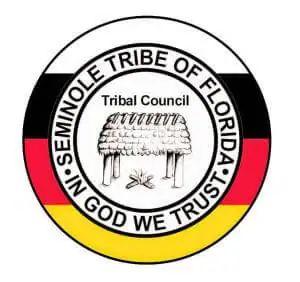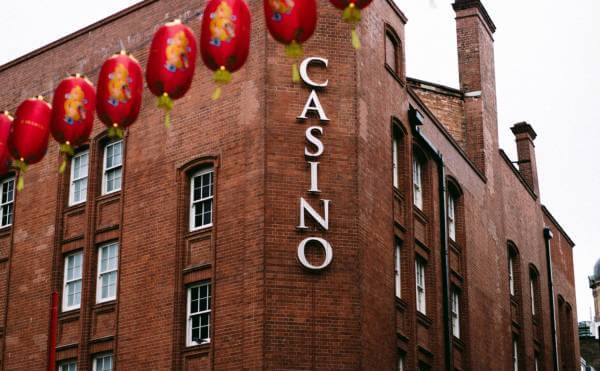Table of Contents
It all began in 1988, when the United States Congress passed the Indian Gaming Regulatory Act (IGRA). That was the precursor that would bring about a boom to the majority of native American tribes in the country. Only about 200 of the 562 recognized tribes operate major US state casinos, but the income from Indian reservation gambling surpasses that of Las Vegas and Atlantic City combined. The tribes we will be discussing have all experienced a dramatic change, From being nomads and living among forests a few decades ago to living in two and three-story houses with wide driveways. The tribal culture tends to make the people prefer modest homes, but they aren’t too modest with four-wheelers, as many houses have a luxury car parked out front. The casino revenue generated by these tribes runs in billions, and every member receives a share of the profits. States also benefit a considerable chunk of the revenue as part of the gambling compact.
1. Shakopee Mdewakanton Sioux Community
When you receive more than $1million a year for doing absolutely nothing, you know you are filthy rich, and that is what each adult in the Shakopee Mdewakanton Tribe boasts as yearly income. The name Mdewakanton means “dwellers at the spirit waters,” and the tribe has long resided in Scott County, along the Minnesota River Valley, Minnesota. They got legal recognition in 1969 and are among the least populated tribes with just about 650 individuals. Once a tribe hunted down by US Army soldiers, they are now owners of luxury casinos and resorts that attract hoards of gamers from the Minneapolis-St Paul region and neighboring states. The Mystic Lake Casino, built in 1992, is the fourth largest Indian casino in the US. It offers 600 rooms, a 2100-seat showroom, an 8350-seat amphitheater, five restaurants, a convention center, and a golf course. The reservation lands established for the tribe in the 1880s was 250-acres in Prior Lake and Shakopee. The Little Six Casino and Mystic Lake Casino Hotel are situated on those lands and extend to a whopping 2000 acres. The casinos are the largest employers in Scott County, with about 4,100 workers, and between both casino establishments, tribal revenues total over $1.5 billion. The tribe’s charitable donations for various causes to date are worth over $350million, notably a $12.5million Grant to the University of Minnesota to fund scholarships for American Indian Students. And most recently, a $5million campaign titled “Understand Native Minnesota” developed to improve the Native American narrative in the state schools. The Shakopee Indians do not only operate the two casinos. They also own several other properties including the JW Mariott Luxury Hotel, the Dakota mall, Dakota Meadows RV park, Dakota Meadows Mini Storage, Dakota Ice Centre, Dakota Sport, and Fitness, Mystic Lake Store, Playworks LINK Event Centre and more.
2. The Seminole Tribe of Florida

The second richest Indian casino tribe in America is one of the three recognized Seminole entities in the country, the Seminole Tribe of Florida. After becoming a legal tribe in 1957, they are now owners of six reservation lands on which stand several casino establishments.
- The Seminole Hard Rock Hotel & Casino Hollywood
- Seminole Casino Coconut Creek
- Seminole Casino Immokalee
- Seminole Casino Brighton
- Seminole Hard Rock Tampa
- Seminole Classic Casino
The largest of the six establishments is the Seminole Hard Rock Hollywood. It was opened in 2004 and recently underwent a $1.5billion expansion that unveiled 1,200 luxury rooms, 18 acres of pool space, a spa, convention space, retail shops, and numerous restaurants and bars. The resort consists of three hotel towers, one of which is the first guitar-shaped hotel in the world. With a 7000 capacity Hard Rock Live Centre, it is no surprise that the resort earns millions for the 4000 person tribe. The gaming entertainment available at the 30,000 square foot gaming area includes 3100 slot machines, 200 table games, and a 45-table poker room. Seminole Casino Coconut Creek is not too far behind with more than 2400 slot machines and 65 live table games. Rounding up the top three Seminole tribal gaming destinations, at the Seminole Casino Immokalee, players enjoy over 1400 slot machines and 38 table games.
3. The Mashantucket Pequot Tribe
The Mashantucket Pequot Tribal Nation is a community of just over 1,000 people and is the owner of the famed Foxwoods Resort Casino, Connecticut. Foxwoods is located within the tribal reservation of Ledyard and is one of the world’s largest casinos. The single establishment has garnered more than $4 billion in slot revenue since its opening in 1992 and has positively impacted the economies of neighboring towns. Covering 4.7 million square feet, the resort has over 6,200 slot machines with 380 gaming tables. It is the record holder for the greatest number of slot machines and the largest bingo hall in the world. The Foxwood casinos provide players with free-to-play online games at FoxwoodsONLINE.com. In addition to a collection of casinos and a vast array of gaming, the resort offers visitors the finest luxury, including gourmet restaurants and quick service diners, AAA Four-Diamond hotels, world-renowned spas, state-of-the-art theatres, and premier golf experience. The tribe also owns the Mashantucket Pequot Museum and Research Centre adjacent to Foxwoods. The museum exhibits native Pequot artifacts and interprets the history and culture of the tribe.
4. The Mohegan Tribe
The Mohegan Tribe used to be a part of the Pequot Tribe up until the 17th century. The tribal reservation is located in the Thames River in Uncasville, Connecticut, and the tribe was legally recognized in 1994, even though they have been a sovereign nation since 1638. Much like the other tribes on this list, the major source of revenue for economic development for the 2000 tribal members has been casino gaming. The grande Mohegan Sun casino was built in 1996, offering two casino lobbies and 364,000 square feet of pure gaming. Guests can lodge in two luxury hotel towers with a total of 1563 rooms. There are over 45 restaurants, bars, and lounges, two world-class spas, a 350 seat Wolf Den, a 10,000-seat Arena, an upscale comedy club, an indoor waterfall that stands 55 feet tall and much more. The tribe also owns the Mohegan Sun Pocono in Pennsylvania with over 2500 slot machines and electronic gaming tables. Other joint ownership ventures include the Resorts Casino Hotel in Atlantic City, Ilani Casino Resort in Washington, Paragon Casino Resort, and the Niagara Falls Entertainment Centre in Ontario, Canada. All tribal casinos are managed by the Mohegan Gaming &Entertainment (MGE), and the casino returns 25% of all slot revenues to the state. Other than government funds, casino gaming is Connecticut’s single largest revenue source.
5. The Pechanga Band of Luiseño Indians
Based in Riverside County, California, the Pechanga Reservation spans nearly 4,400 acres of land. The registered tribal members are over a thousand, but only about 467 live on the reservation. The Pechanga Resort &Casino stands on the tribal Pauma and Yiuma reservations that were allotted to the tribe in 1882 near Temecula. The resort opened in 2002 and offers 200,000 square feet of gaming space. As the largest resort & casino on the country’s West Coast, it boasts an AAA Four-Diamond hotel with 1,090 rooms, a 25,000 square foot spa center, and a 40,000 square foot events center for recreational and businesses purposes. The recent $300 million expansion project created a four and a half acre tropical pool complex with three pools, two waterslides, a fountain, a dedicated restaurant, and 27 cabanas. The Pechanga Resort and Casino reportedly earns between $1 and $2 billion yearly from which each adult tribal member receives more than $300,000. The luxury destination is also the 2015 winner of the “Best US Casino” award by USA Today.
6. The Potawatomi Tribe
Having a population of 28,000 members, the Potawatomi Tribe is one of the largest Native American tribes in The US. Their treaty with the United States government took place in 1783 during the Treaty of Paris. Most of the reservation territory is situated in Forest County in the upper Mississippi River and the Western Great Lakes Region. The tribe is the county’s top employers both for its businesses and its government administrative center. Located in Milwaukee, Wisconsin, the Potawatomi Hotel and Casino is the number one entertainment destination in the Midwest. The business opened in 1991 as an off-reservation bingo hall spanning 45,800 square feet. Almost 30 years and three expansions later, the casino features over 2500 slot machines, nearly 100 table games, and 20 poker tables. In addition to the casino, the $150 million hotel built in 2014 attracts over 6 million visitors yearly. Other amenities include the VR Topgolf Swing Suite, a 3000-seat sophisticated meeting room, a salon & a spa. The casino hotel has also created lots of employment employments with over 3,000 Milwaukee residents on its payroll. With so much success, the payments to members of the tribe reached a record high of $80,000 on average in 2012.
7. The Eastern Band Of Cherokee Indians
According to American history, the Cherokee Indians had moved from the east to settle in the west. But 800 Cherokee members decided to remain in the east, thereby separating from their fellow tribesmen. The Eastern Cherokee Indians are descended from the 800 Cherokee that stayed in the east. Now a population of over 16,000, it is one of the most successful casino tribes in the country. The tribe has a gaming relationship with the state that is more advanced than others. North Carolina consented to open a casino establishment on the reservation even before a state lottery was implemented – the antithesis of what other US casino states did. In 1997 on the Qualla Boundary, Harrah’s Cherokee Casino Resort opened its doors to the public. The casino was built in partnership with Caesar Entertainment Corporation and features a huge gaming floor with live table games, slot machines, poker rooms, and a sportsbook. The casino also offers Vegas-style promos and reward schemes for players. The 21-story hotel offers 1108 rooms with amazing views. Guests have access to a spa, a fitness room, an indoor pool, an outdoor pool, and 11 restaurants and bars with a diversity of dining options. As the first major casino in the state, it quickly attracted large crowds of avid gamblers, and revenue grew with each passing year. In 2015, the tribe opened a second Harrah’s Casino in Murphy called Harrah’s Cherokee Valley River. Gaming revenue of nearly $400million in 2018 saw 16,000 Cherokee members receive over $12,000 each, the largest tribal per capita distribution in the state.






